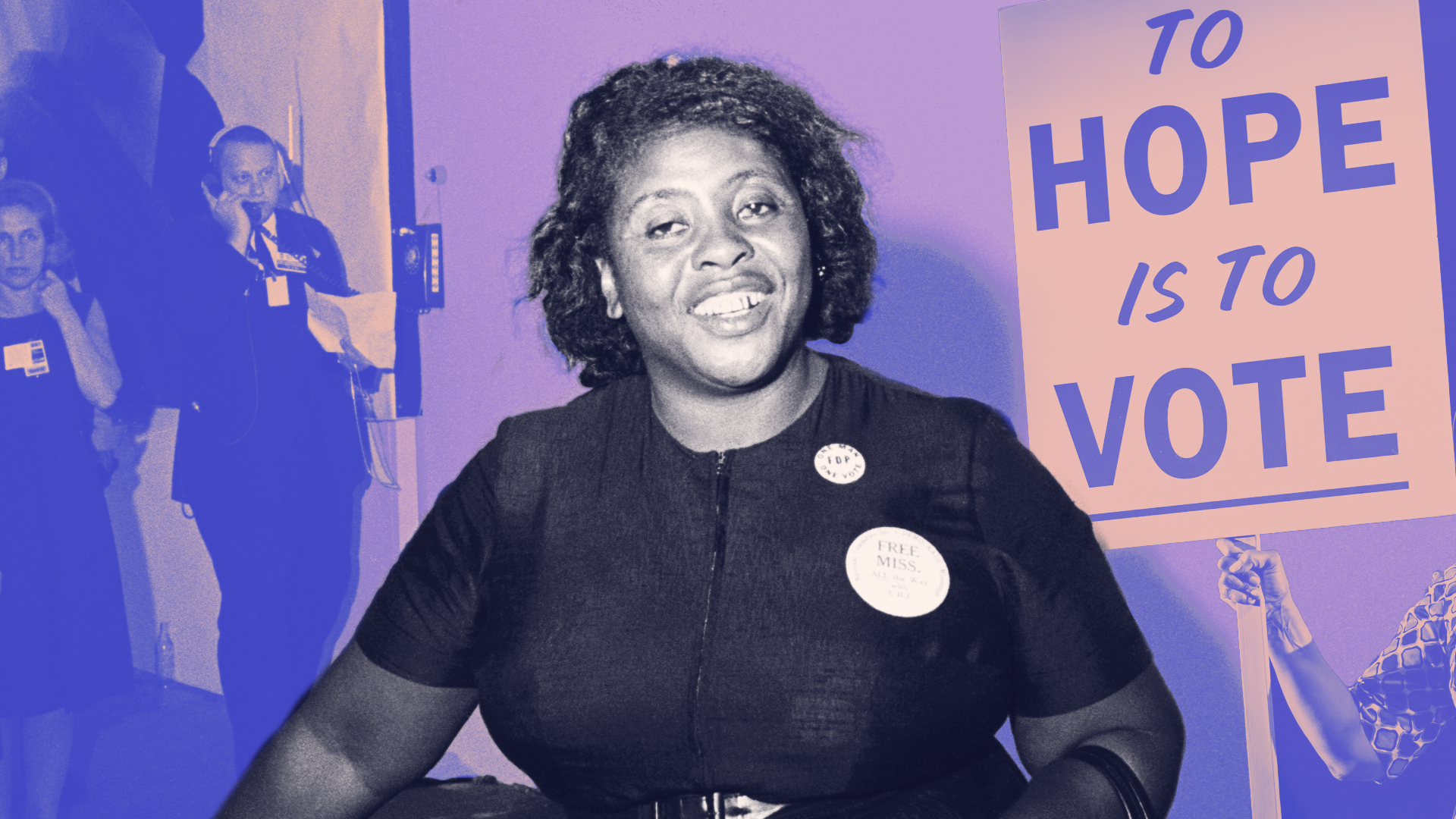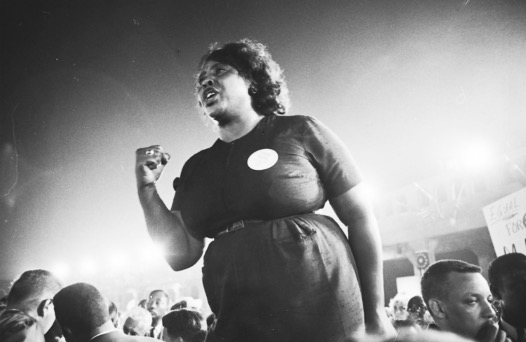Fannie Lou Hamer

Fannie Lou Hamer turned her pain into power, becoming the thunderous voice of the Mississippi Freedom Democratic Party, a driving force behind Freedom Summer, and a national symbol of the fight for voting rights.
Biography
Born in 1917 in the cotton fields of Mississippi as the youngest of 20 children, Fannie Lou Hamer’s early life was shaped by poverty, racism, and hard labor. By the age of six, she was picking cotton. By twelve, she left school to work full time. She lived under the thumb of a brutal system designed to keep Black families poor, voiceless, and invisible. But Hamer refused to stay invisible. Her voice would one day shake the walls of Congress and force America to confront its hypocrisy.
In 1961, a white doctor performed a hysterectomy on Hamer without her consent—part of a widespread practice of forcibly sterilizing Black women in the South. That violation lit a fire in her that would never go out. The following year, at age 44, Hamer attended a voting rights meeting hosted by the Student Non-Violent Coordinating Committee (SNCC). She had never been told Black people could legally register to vote. That same week, she tried and failed to register. On the way home, the police pulled over her bus and arrested the driver for the made-up charge of 'driving a bus too yellow.' Back home, her plantation boss told her to withdraw her registration or be fired. Hamer didn’t blink. She left that night. 'They set me free,' she said. 'Now I can work for my people.'
And work she did. Hamer was beaten, jailed, shot at, and stalked by white supremacists, but never silenced. She became a field secretary for SNCC, spreading the gospel of voting rights across the Mississippi Delta. Her ability to mix fiery truth-telling with spiritual conviction made her one of the most powerful orators of the civil rights era. In 1964, she co-founded the Mississippi Freedom Democratic Party (MFDP), a grassroots group that challenged the all-white, segregationist Mississippi Democratic delegation at the national convention. When President Lyndon Johnson tried to block her from being televised, her speech aired later during prime time and the whole country listened. 'I’m sick and tired of being sick and tired,' she declared, her voice cracking with truth.
When politics failed to deliver justice fast enough, Hamer turned to economics. She launched the Freedom Farm Cooperative (FFC) in 1969 to give poor Black families land, food, and dignity. With support from allies like Harry Belafonte, she bought hundreds of acres and started a pig bank, a sewing business, and low-income housing. Her work fed and employed hundreds, and inspired thousands. She also co-founded the National Women’s Political Caucus in 1971, calling on women of all races to organize and run for office. 'Your freedom is shackled in chains to mine,' she told a mostly white audience. 'And until I am free, you are not free either.'
Fannie Lou Hamer died in 1977 from complications of cancer and heart disease, but her legacy never left the room. Her voice still echoes in every fight for justice today. In 2023, nearly 50 years after her death, President Joe Biden awarded her the Presidential Medal of Freedom. But the truth is, Fannie Lou Hamer didn’t wait around for permission to be honored. She lived like she was already free and demanded the rest of the country catch up.
Hamer’s life connects the dots between ballots and bread. She knew that voting rights without economic power meant empty promises, so she built pig banks, co‑ops, and low‑income housing alongside registration drives. Her blueprint shows that real freedom is political, economic, and communal—exactly the intersectional approach today’s movements still need.
?
How did forced sterilization and police violence shape Hamer’s activism?
Why did the Mississippi Freedom Democratic Party challenge the 1964 Democratic Convention, and what did they gain even though they weren’t seated?
What parallels can you see between Hamer’s fight for voting rights and current debates over voter access?
How did Hamer blend economic projects (like the pig bank and Freedom Farm) with political action?
If Hamer were organizing today, what issues—climate justice, student debt, digital privacy—might she tackle, and how?
Dig Deeper
Fannie Lou Hamer was one of the most powerful voices of the Civil Rights Movement, fighting against police brutality, white supremacy, sexual assault, and segregated education — this is how her legacy lives on today
Discover more

Martin Luther King Jr.
Martin Luther King Jr. was a transformative leader in the American Civil Rights Movement, advocating for justice through nonviolent resistance.

Rosa Parks
Rosa Parks did not simply stay seated because she was tired, she sat down and refused to move because she was tired of giving in.

Frederick Douglass
Frederick Douglass was born into slavery and became one of the most powerful voices for freedom, equality, and civil rights in American history.
Further Reading
Stay curious!
